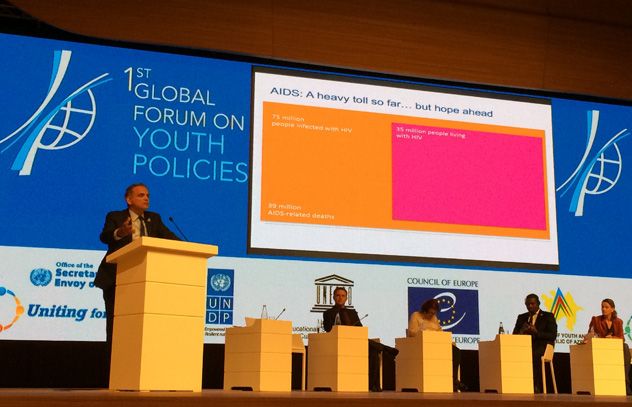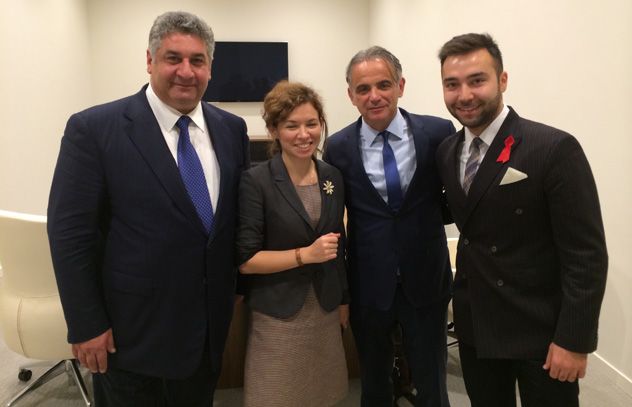


Update
First Global Forum on Youth Policies
30 October 2014
30 October 2014 30 October 2014How to address the needs of the world’s young people and shape more meaningful youth policies that resonate in the post-2015 development landscape was the central question explored in a major international meeting that took place in the Azerbaijan capital, Baku, this week.
The First Global Forum on Youth Policies, held from 28 to 30 October, provided an opportunity for 700 participants to examine the social and developmental role of youth policy in areas as diverse as health, the environment, housing, education, employment and the justice system. They also discussed the need to pursue multisectoral approaches to such policies, looked at the key ingredients for policy development, debated regional strategies to take youth policy forward and shared experiences of interventions in action.
The 1995 World Programme of Action for Youth, the original global framework for youth policies, was a springboard for the debate. It was argued in the meeting that while progress has been made in the past 20 years, with 122 countries having current youth policies and a further 36 updating theirs, much more needs to be done to design well-resourced and inclusive policies catering to young people.
During a session on the guiding principles for youth policy development, UNAIDS Deputy Executive Director Luiz Loures spoke about lessons learned from the AIDS response that can take youth policies forward in the twenty-first century. He highlighted a range of UNAIDS initiatives in which young people take the lead and have a direct role in policy development.
Such initiatives include CrowdOutAIDS, a collaborative online social media project that produced strategic recommendations on how UNAIDS engages with youth organizations, the pact for social transformation, a coalition of 25 youth-led organizations committed to working strategically and collaboratively in the AIDS response, and the ACT 2015 campaign, which promotes collective action to ensure that HIV and universal access to sexual and reproductive rights and harm reduction services are central to the post-2015 development agenda.
Concrete ways of taking youth policies forward over the next five years and actions and strategies needed to build on the first global forum were explored at length and participants agreed to redouble their efforts to make sure that young people’s voices are heard.
The First Global Forum on Youth Policies was co-organized by the United Nations Secretary-General’s Envoy on Youth, UNDP, UNESCO and the Council of Europe. It was hosted by Azerbaijan’s Ministry of Youth and Sports and the youthpolicy.org team.
Quotes
"Health is a factor with two dimensions, medical and societal—treatment and prevention. It's important to understand both the dimensions in order to have a youth policy which will comprehensively address the health and well-being of youth and adolescents. Meaningfully engaging young people in the youth policy process would be the best way to achieve this target."
“The AIDS response, like the global movement for youth empowerment, shows that stigma and discrimination have no place in the 21st century”
“Music has the power to change the minds and hearts of people. I am committed to use my music to engage young people on HIV awareness and promote human rights and zero discrimination"



